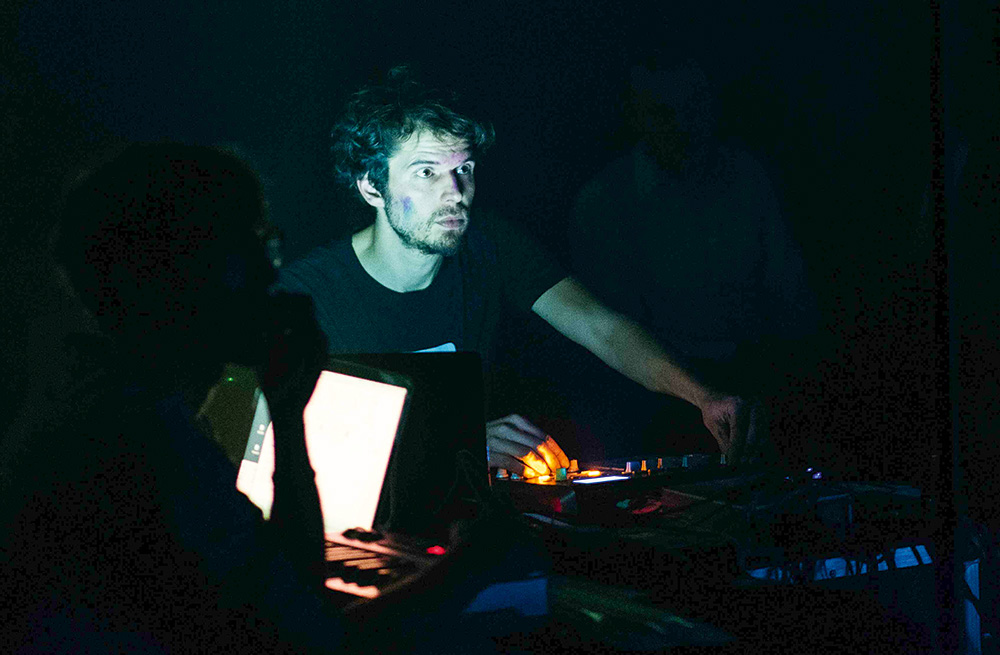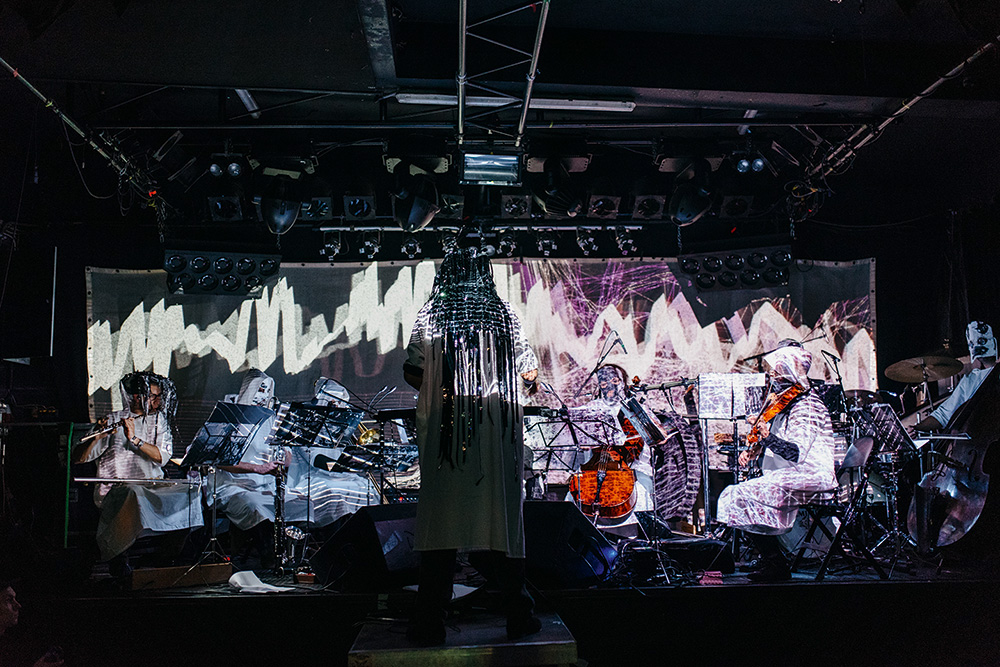His works, characterised by authenticity, density, and extreme heterogeneity, probe music’s outer margins. An exceptional composer on a quest for new worlds.

Jean Dubuffet, in his writings, speaks of liberation from cultural influences. It’s an ideal that nobody can truly achieve, since we’re all anchored in culture even just by virtue of the languages we speak. But even so, Matthias Kranebitter seeks to advance into worlds that lie outside the zone of the culturally accustomed. “That’s why I try to develop my own tools and composing techniques. And the point in using computers is to find an approach that’s influenced neither by my own taste nor by my own musicality.” The Vienna native began composing in very early childhood—first at the piano, and later on using computers. And by studying mathematics, he acquired skills that he would apply to his composing work later on. “The way I work is mainly algorithm-based, at the computer. And thanks to my prior studies, I have a general understanding of mathematics.”
Kranebitter began his studies in composition at the mdw in 2000, choosing to specialise in Media Composition and Applied Music under Klaus Peter Sattler, after which he continued with Electroacoustic Composition under Dieter Kaufmann and German Toro Perez. He attaches great importance to the software packages that he learned to use as a student. “The software and tools I use repeatedly provide new creative impulses and serve me as a source of new possibilities and ideas.”
Matthias Kranebitter can sometimes use even just the description or theme of a commission as inspiration for his unusual works. “Last year, for example, I composed something on the topic of Big Data for the Decoder Ensemble. And that was right up my alley, because I do generally work with a large, dense body of data.” But he can also take inspiration simply from a sound, an instrument, or a philosophical concept. “I try very hard to create a link with society. Either via the technologies I employ or via an aesthetic that does justice to how I perceive the world.” Humour plays an equally important role in his compositions. “But it isn’t about some kind of slapstick; it really goes a lot deeper. One way of describing this idea would be to call it ‘carnevalisation’. Existing structures are dissolved using humour and generally valid rules are negated, which gives rise to a certain degree of ambivalence.”

The award-winning composer receives ensemble and festival commissions, but he also realises projects that are born in his own head with his own ensemble: the Black Page Orchestra, which he founded in 2014. He’ll be doing so again at this year’s Unsafe & Sound Festival, which will take place from 2 to 13 October in Vienna’s Nordbahnhalle with the motto Brutal Times – Strategies at the Abyss. “I started this festival in 2014. From the very beginning, it was important to me to showcase a mix of the most varied musical scenes, which is why I programme it together with my colleague Shilla Strelka, who comes from an entirely different corner of the musical world.” But prior to this year’s festival, Kranebitter and his ensemble are to perform at the invitation of the Warsaw Autumn with subsequent appearances in Switzerland and in Ljubljana, Slovenia. To those still figuring out where to take their careers in music, Kranebitter would offer the following: “You have to be honest and do what you’re interested in, what you have most fun with when you’re actually working on it—because that’s the thing you’ll be spending the most time on.” And another bit of advice he’d give young students: “I think that one should always be authentic. And being very proactive also helps. As a composer, you can’t just sit around and wait for somebody to come to you. Besides which, when I write and submit grant applications myself and then get money as a result, I can do whatever I want artistically.”
Kranebitter also knows that whether or not a piece of music works depends heavily on publicity and on one’s audience. But even so, his compositions have to make sense to him personally. “The important thing is to focus on and get satisfaction out of your own work. Lots of people go chasing after success because they hope it will satisfy them. But if money’s that important to you, you really shouldn’t become a composer.” His plans for the future? “Talking about the future is always difficult; for the moment, I’m satisfied.”

